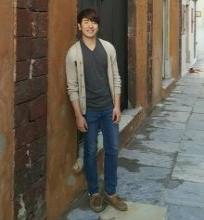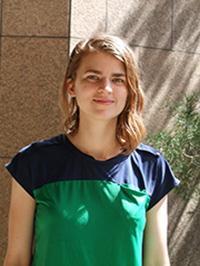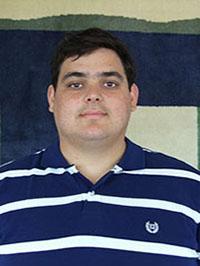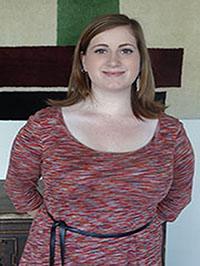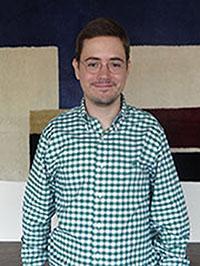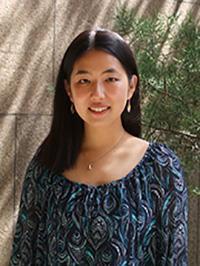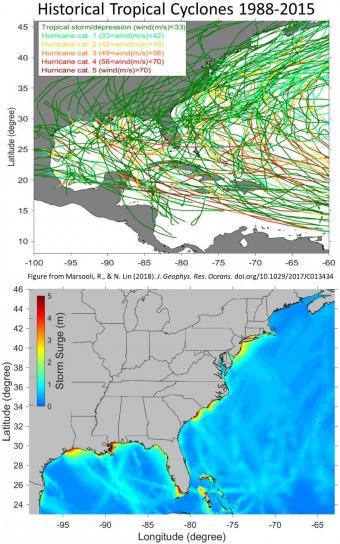
National Science Foundation - Enriched Doctoral Training in the Mathematical Sciences
"Mathematical Methods for Water Problems" 2015-2019
Mathematical Methods for Water Problems research is a National Science Foundation training grant focused on exposing students to societal problems related to water, and to the mathematical challenges related to modeling and analyzing these problems. The project is aimed at providing student with the tools needed to recognize opportunities to develop mathematical approaches to societal problems related to water, and to be able to effectively apply and implement advanced mathematical strategies to them.
Student trainees participate in bi-monthly working lunches. They present material of general interest including papers they are reading or partial results they have obtained. Presentations by PIs, supporting faculty, associated PACM faculty and visitors are part of the activities of the seminar.
Student trainees also spend time interning at four international centers with whom we work closely:
The International Institute for Applied Systems Analysis (IIASA), Laxenburg, Austria, (http://www.iiasa.ac.at) is a center for international cooperation on problems of global change; water has long been a focus, and that focus is expanding. IIASA is an ideal venue for graduate student internships in this area. The International Institute for Applied Systems Analysis (IIASA), Laxenburg, Austria,(http://www.iiasa.ac.at) is a center for international cooperation on problems of global change; water has long been a focus, and that focus is expanding. IIASA is an ideal venue for graduate student internships in this area.
The Stockholm Resilience Centre (SRC) (http://www.stockholmresilience.org/) is a young and unique institution. In 2006, the Swedish Foundation for Environmental Research (Mistra) invested 205 million Swedish crowns (or close to 30 million USD) in the creation of the Stockholm Resilience Centre. The aim was to create a world-leading interdisciplinary research center that advances the understanding of complex social-environmental systems and generates new and detailed insights, and the means for the development of management and governance practices. The Stockholm Resilience Centre advises policymakers from all over the world, and develops innovative collaboration with all relevant actors, from those working at local scales (e.g. pollution in Stockholm), to the global policy arena (e.g. climate change mitigation).
The Centre for Ecological and Evolutionary Synthesis (http://www.mn.uio.no/cees/) is a Norwegian and Nordic Centre of Excellence, employing around 115 persons (including 32 PhD students and 49 postdocs). Our main collaborator there is Prof. Nils Stenseth: the founding chair of CEES, and the current president of the Norwegian Academy of Science and Letters. CEES’s mission is to combine the competence of ecologists, evolutionary biologists, climatologists, statisticians, mathematicians and economists in order to approach major, but still unresolved, scientific challenges. CEES has strong and extensive experience in doing so.
The Venice Institute for Climate Change Studies (VICCS) (http://www.unive.it/) is an interdisciplinary research center based at the Ca’ Foscari University of Venice, focusing on the assessment, detection, quantification, communication and facilitation of sustainable solutions to global change problems. Its mission is to investigate and model the feedback between society and the climate system, and provide reliable, rigorous, and timely scientific results to help develop climate change adaptation and mitigation policies. It is a hub of interdisciplinary research, with a focus on business, environmental economics and climate policy.
Faculty
Peter Constantin, John von Neumann Professor of Mathematics and Applied and Computational Mathematics.
Yannis Kevrekidis, Pomeroy and Betty Perry Smith Professor in Engineering, Emeritus. Professor of Chemical and Biological Engineering and Applied and Computational Mathematics, Emeritus. Senior Scholar
Simon A. Levin, James S. McDonnell Distinguished University Professor in Ecology and Evolutionary Biology.
Ning Lin, Assistant Professor of Civil and Environmental Engineering.
Ignacio Rodriguez-Iturbe, James S. McDonnell Distinguished University Professor of Civil and Environmental Engineering and the Princeton Environmental Institute, Emeritus. Senior Scholar
Howard Stone, Donald R. Dixon '69 and Elizabeth W. Dixon Professor of Mechanical and Aerospace Engineering.
Corina Tarnita, Assistant Professor of Ecology and Evolutionary Biology.
Student Trainees
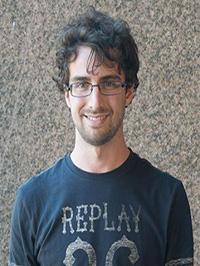
Federico Pasqualotto
Mathematics
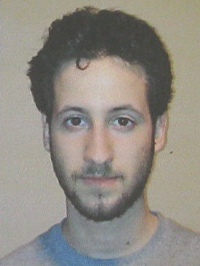
Benjamin Schaffer
Civil and Environmental Engineering
Click here for Benjamin's poster
David Sroczynski
Chemical and Biological Engineering

Fan Yang
Mechanical and Aerospace Engineering
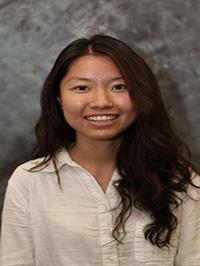
Yingxian Yu
Mechanical and Aerospace Engineering

